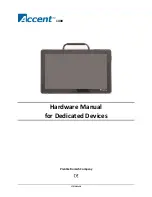
50 - Guidelines for safe battery usage
G
UIDELINES
FOR
SAFE
BATTERY
USAGE
Battery information
Do not use this product in a humid, wet and/or corrosive environment.
Do not put, store or leave your product in or near a heat source, in a
high temperature location, in strong direct sunlight, in a microwave
oven or in a pressurized container, and do not expose it to
temperatures over 60° C (140° F). Failure to follow these guidelines
may cause the battery to leak acid, become hot, explode or ignite and
cause injury and/or damage. Do not pierce, open or disassemble the
battery. If the battery leaks and you come into contact with the leaked
fluids, rinse thoroughly with water and seek medical attention
immediately. For safety reasons, and to prolong the lifetime of the
battery, charging will not occur at low (below 0° C/32° F) or high (over
45° C/113° F) temperatures.
The full performance of a new battery is achieved only after two or
three complete charge and discharge cycles. The battery can be
charged and discharged hundreds of times, but it will eventually wear
out. When the talk and standby times are noticeably shorter than
normal, buy a new battery. Use only manufacturer approved batteries,
and recharge your battery only with manufacturer approved chargers
designated for this device.
Unplug the charger from the electrical plug and the device when not in
use. Do not leave a fully charged battery connected to the AC
charger, since overcharging may shorten its lifetime. If left unused, a
fully charged battery will lose its charge over time. If the battery is
completely discharged, it may take a few minutes before the charging
indicator appears on the display or before any calls can be made.
Use the battery only for its intended purpose. Never use any charger
or battery that is damaged.
Do not short-circuit the battery. Accidental shortcircuiting can occur
when a metallic object such as a coin, clip, or pen causes direct
connection of the positive (+) and negative (-) terminals of the battery.





































